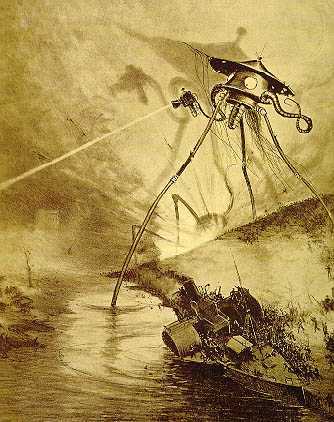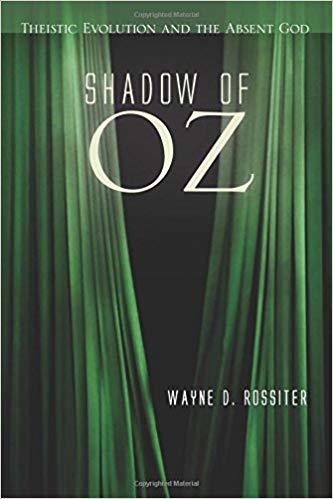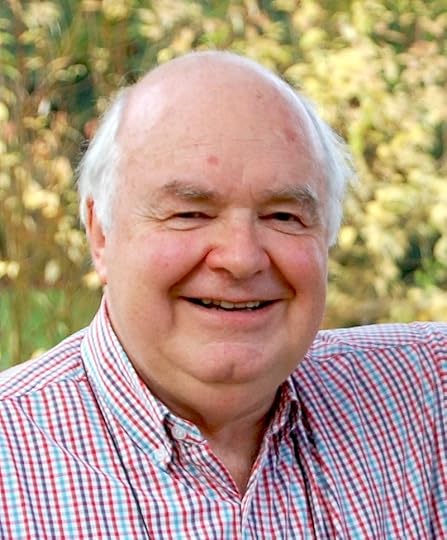Michael J. Behe's Blog, page 502
April 1, 2019
Researchers: Complex tools don’t show ancient humans were smart
From ScienceDaily:
Artefacts such as bows and arrows do not necessarily prove our ancestors had sophisticated reasoning and understanding of how these tools worked, new research suggests.
Instead, such items could have emerged from an “accumulation of improvements made across generations” — with each generation understanding no more than the last.
The new study, by the University of Exeter and the Catholic University of Lille, does not question humanity’s capacity for “enhanced causal reasoning” — but argues this did not necessarily drive the development of technologies such as bows, boats and houses. …
“We tend to explain the existence of complex technologies by saying humans have big brains and superior causal reasoning abilities,” said Dr Maxime Derex, of the University of Exeter and the Catholic University of Lille.
“But — as our study shows — you don’t have to understand how something works in order to improve it.
“Artefacts from hundreds or thousands of years ago do not necessarily show that their makers had a plan or a theory about how something would work.”Paper. (paywall) – Maxime Derex, Jean-François Bonnefon, Robert Boyd and Alex Mesoudi. Causal understanding is not necessary for the improvement of culturally evolving technology. Nature Human Behaviour, 2019 DOI: 10.1038/s41562-019-0567-9 More.
The study involved a rather far-fetched experiment on university students involving optimizing dragging a wheel down a track.
Experience from recorded history is clearly of humans getting just such ideas as the authors claim to be impossible in remote antiquity — and to make their point, they use modern students! Most likely, the felt need to identify a subhuman state of mind lies behind such a claim. Unlike the claim that the Neanderthals never produced art, this one can’t just be exploded. It can never be demonstrated either but in the present environment, that doesn’t matter. If the claim is made enough times, it will become orthodoxy.
See also: Eating fat, not meat, led to bigger human type brains, say researchers. Theories of the evolution of the human brain are a war of trivial explanations that no one dare admit are too trivial for what they purport to explain. It’s like blaming World War II on indigestion, only monstrously bigger.
Earlier discussion of the fat theory.
Starchy food may have aided human brain development
Do big brains matter to human intelligence?
Human evolution: The war of trivial explanations
and
What Taragana
Why does matter, not antimatter, dominate our universe? Physicists don’t know.
It looks as if a choice was made when it could have gone either way, and we don’t know how or why:
The first part to the puzzle is recognizing that this really is an existential problem. The Universe really is made of matter and not antimatter, and this is not a problem that’s going to go away. It isn’t the case that some parts of the distant Universe are made of antimatter and the Universe is really matter-antimatter symmetric; it isn’t plausible that the matter we see is due to a random, pro-matter (and anti-antimatter) fluctuation in the early Universe; it isn’t a problem that disappears if we hypothesize an equal-and-opposite antimatter Universe as a counterpart to our own.
Whenever and wherever antimatter and matter meet in the Universe, there’s a fantastic outburst of energy due to particle-antiparticle annihilation, and we don’t see that anywhere on large scales.Ethan Siegel, “No, Physicists Still Don’t Know Why Matter (And Not Antimatter) Dominates Our Universe” at Forbes
Recently, theoretical physicist Ethan Siegel crossed our screen while making clear why, in his view, a multiverse MUST exist. If we know so little about the actual universe that we can’t answer the title question, what sense does it make to insist that there must be an infinity of universes?
Here’s a thought: Most such people probably can’t help it. Their need to discredit something is likely greater than their need to know anything.
Follow UD News at Twitter!
See also: Physicists: New Approach To Antimatter Offers Promising Results
Clue about antimatter: Does it depend on how neutrinos behave vs. antineutrinos?
Improved precision in matter-antimatter difference does not resolve mystery
and
Experiments on antimatter are now possible?
Copyright © 2019 Uncommon Descent . This Feed is for personal non-commercial use only. If you are not reading this material in your news aggregator, the site you are looking at is guilty of copyright infringement UNLESS EXPLICIT PERMISSION OTHERWISE HAS BEEN GIVEN. Please contact legal@uncommondescent.com so we can take legal action immediately.
Plugin by Taragana
Still no space aliens? That’s because they are keeping us in a zoo!
 Alien tripod by Alvim Corréa, 1906 French edition of H.G. Wells’ “War of the Worlds”
Alien tripod by Alvim Corréa, 1906 French edition of H.G. Wells’ “War of the Worlds”Some say it’s time to consider the zoo hypothesis: “They can see us but we can’t see them. The idea revisits a theory proposed in 1973 by radio astronomer John Ball:
Ball went further, proposing that we may live in a metaphorical zoo — a kind of cosmic Eden. The aliens of the galaxy have somehow arranged things so that our planet is shielded from them by one-way bars: They can observe us, but we can’t observe them.
One nice thing about this conjecture is that it offers a solution to a long-standing puzzle known as Fermi’s Paradox. Broached nearly 70 years ago by physicist Enrico Fermi, it rests on the fact that the universe is very old. Consequently, if intelligent life is commonplace, then some of it is surely advanced enough to have colonized the entire galaxy. We should see evidence of aliens everywhere. The fact that we don’t might be explained by Ball’s hypothesis — we’re being deliberately isolated.
The zoo hypothesis has been in the news recently because it also provides justification for an activity known as METI, short for Messaging Extraterrestrial Intelligence. Seth Shostak, “ ‘Zoo hypothesis’ may explain why we haven’t seen any space aliens” at NBC News
The most reasonable explanation for why we never hear from them is still that They ain’t Out There. But here, as so often with current science, the most reasonable explanation is just not acceptable.
And yes, it is April 1, but Seth Shostak is not kidding. Neither is NBC. See also: What? Oumuamua was just a comet? After all the ET hype? Let’s not lose sight of the fact that it was orthodox science media (Scientific American, we are looking at you… ) who were marketing the space alien thing, not some crackpot in a tinfoil hat. And yet the same people have the nerve to sponsor reams of stuff on why “people” believe in pseudoscience.
and
Tales of an invented god The most important characteristic of an AI cult is that its gods (Godbots?) will be created by the AI developers and not the other way around
Copyright © 2019 Uncommon Descent . This Feed is for personal non-commercial use only. If you are not reading this material in your news aggregator, the site you are looking at is guilty of copyright infringement UNLESS EXPLICIT PERMISSION OTHERWISE HAS BEEN GIVEN. Please contact legal@uncommondescent.com so we can take legal action immediately.
Plugin by Taragana
March 31, 2019
“Lousy” science dedicated to making kids from pious families look stupid

Waynesburg University biologist Wayne Rossiter, author of Shadow of Oz: Theistic Evolution and the Absent God, talks about how the trick is done in a 2014 study, for example,
The abstract is fairly provocative:
“Children who went to church or were enrolled in a parochial school, or both, judged the protagonist in religious stories to be a real person, whereas secular children with no such exposure to religion judged the protagonist in religious stories to be fictional. Children’s upbringing was also related to their judgment about the protagonist in fantastical stories that included ordinarily impossible events whether brought about by magic (Study 1) or without reference to magic (Study 2). Secular children were more likely than religious children to judge the protagonist in such fantastical stories to be fictional…The results suggest that exposure to religious ideas has a powerful impact on children’s differentiation between reality and fiction, not just for religious stories but also for fantastical stories.” Abstract:(open access)More. – Kathleen H. Corriveau Eva E. Chen Paul L. Harris, Judgments About Fact and Fiction by Children From Religious and Nonreligious Backgrounds, Cognitive Science, 04 July 2014 https://doi.org/10.1111/cogs.12138
Rossiter responds,
Joseph is a well-known biblical character, not someone a 5-6 year old has never heard of. So, the name Joseph is going to instill trust in the story for those who have any religious background. The researchers should’ve said “This is Charlie. He went fishing…,” etc. Worse, they use the same character in three consecutive stories (in their appendix they detail that they did this for the other stories as well). If the first story was one a religious kid would trust because it involves a known biblical character (Joseph) and God’s miraculous work, that will affect subsequent stories about Joseph. You’ve tainted the child’s perception of who Joseph is, and what kinds of things can happen to him.Wayne Rossiter, “How to do exceptionally biased (lousy) science” at Shadow of Oz
But then, in the world of almost unbelievably enormous hoaxes on social science profs, why need we expect anything different? They know they can get away with it.
See also: Putting a respectable face on persecuting the social justice science hoaxers
Embattled “Social Sciences Hoax” Prof Is Not A Hero, He’s A Canary
Social Science Hoaxer’s Job At Risk For Revealing “Bias”
Sokal hoaxes strike social science again
Exposing gender studies as a Sokal hoax
Social Science Hoax Papers Is One Of RealClearScience’s Top Junk Science Stories Of 2018
and
Alan Sokal, Buy Yourself A Latte: “Star Wars” Biology Paper Accepted
Copyright © 2019 Uncommon Descent . This Feed is for personal non-commercial use only. If you are not reading this material in your news aggregator, the site you are looking at is guilty of copyright infringement UNLESS EXPLICIT PERMISSION OTHERWISE HAS BEEN GIVEN. Please contact legal@uncommondescent.com so we can take legal action immediately.
Plugin by Taragana
MIT prof was smarter than God
 Rosalind Picard,
Rosalind Picard, Director of Affective Computing Research
Faculty Chair, MIT
Well, anyway, she thought so:
As early as grade school, when I was a voracious reader and a straight-A student, I identified with being smart. And I believed smart people didn’t need religion. As a result, I declared myself an atheist and dismissed people who believed in God as uneducated.
In high school, I led a classroom debate team arguing for a godless form of evolution, confident my side would win because “this was science.” When the class voted and awarded victory to the creation side, I was dumbstruck. Most people didn’t understand science, I figured—either that, or they were unduly swayed by the most popular girl in class. She had a swimming pool in her backyard and threw fun parties. Rosalind Picard, “An MIT Professor Meets the Author of All Knowledge” at Christianity Today
Um… she allowed people to know that she was smarter than they were and that’s rarely a winning social move. Anyway, it’s happened elsewhere. But then…
I once thought I was too smart to believe in God. Now I know I was an arrogant fool who snubbed the greatest Mind in the cosmos—the Author of all science, mathematics, art, and everything else there is to know. Today I walk humbly, having received the most undeserved grace. I walk with joy, alongside the most amazing Companion anyone could ask for, filled with desire to keep learning and exploring. Rosalind Picard, “An MIT Professor Meets the Author of All Knowledge” at Christianity Today
Well, good for her. In the world of Chaitin’s number, you hope people will start to be more careful. Onward!
Follow UD News at Twitter!
Hat tip: Philip Cunningham
See also: Logic spaghetti: Who created God? Mark Tapscott: What are the most difficult questions to answer? Solid candidates are those which by virtue of how they are posed eliminate the only logical and correct answers. (Introducing mathematician John Lennox)
Copyright © 2019 Uncommon Descent . This Feed is for personal non-commercial use only. If you are not reading this material in your news aggregator, the site you are looking at is guilty of copyright infringement UNLESS EXPLICIT PERMISSION OTHERWISE HAS BEEN GIVEN. Please contact legal@uncommondescent.com so we can take legal action immediately.
Plugin by Taragana
Logic spaghetti: Who created God?
 John Lennox
John LennoxOxford mathematician John Lennox takes on Richard Dawkins:
What are the most difficult questions to answer? Solid candidates are those which by virtue of how they are posed eliminate the only logical and correct answers.
Who created God is one such question that is invariably heard when two or more intelligent people begin talking about the most important issues in life.
Oxford mathematician John Lennox took up this perennial question during a 2011 interview with Daniel Lowenstein at UCLA during the “Christianity and the Tooth Fairy” conference hosted by the Veritas Forum.
“Who created God? If you ask that question, it shows immediately that you’ve categorized God as created,” Lennox said in beginning his response to Lowenstein’s query.Mark Tapscott, “Who Created God? Oxford’s John Lennox Responds To Richard Dawkins” at Hillfaith Blog
Oldie (2011) but goodie. Tapscott promises, “If this eight minute discussion doesn’t get your synapses snapping, nothing will.”
Follow UD News at Twitter!
See also: Jerry Coyne on how John Lennox embarrasses himself
and
John Lennox Vs Peter Atkins: Can Science Explain Everything?
Copyright © 2019 Uncommon Descent . This Feed is for personal non-commercial use only. If you are not reading this material in your news aggregator, the site you are looking at is guilty of copyright infringement UNLESS EXPLICIT PERMISSION OTHERWISE HAS BEEN GIVEN. Please contact legal@uncommondescent.com so we can take legal action immediately.
Plugin by Taragana
Kirk Durston: In defence of experimental science

As opposed to inferential science and science fiction. Durston focuses on experimental science and faith:
I have three things to say about experimental science:
Every technological benefit science has given us, without exception, has come from this category of science
I am not aware (and I’ve thought long about this) of a single conflict between faith in God and experimental science.
Even experimental science, trustworthy as it is, has a warning to give us about “believing” in science. Kirk Durston, “Faith and Science: Part I — Experimental science and implications for faith in science and God” at Quest
See also: Backing up the particle physicist who said there is baked-in bias in science.
Follow UD News at Twitter!
Copyright © 2019 Uncommon Descent . This Feed is for personal non-commercial use only. If you are not reading this material in your news aggregator, the site you are looking at is guilty of copyright infringement UNLESS EXPLICIT PERMISSION OTHERWISE HAS BEEN GIVEN. Please contact legal@uncommondescent.com so we can take legal action immediately.
Plugin by Taragana
Did complex societies predate moral gods?
Sometimes an argument from Naturalism Inc. becomes too complex to follow. Here’s just such an argument:
The appearance of moralizing gods in religion occurred after—and not before—the emergence of large, complex societies, according to new research. This finding upturns conventional thinking on the matter, in which moralizing gods are typically cited as a prerequisite for social complexity.
Gods who punish people for their anti-social indiscretions appeared in religions after the emergence and expansion of large, complex societies, according to new research published today in Nature. The finding suggests religions with moralizing gods, or prosocial religions, were not a necessary requirement for the evolution of social complexity. It was only until the emergence of diverse, multi-ethnic empires with populations exceeding a million people that moralizing gods began to appear—a change to religious beliefs that likely worked to ensure social cohesion. George Dvorsky, “Humans Built Complex Societies Before They Invented Moral Gods” at Gizmodo
Sure. It’s like the social life of Neanderthal man. The data are so sparse (compared, say, to World War II), he can work it any way he needs to.
The big shift in religion over the last few millennia , with masses of evidence, was well described over a century ago — the shift from Stone Age beliefs to modern Eastern and Western beliefs, a shift that happens at various times and in various places but seems to be associated with evidence-based thinking patterns. That leads to the rise of religions that made use of concepts in philosophy. There has been a considerable effort to undermine the significance of this shift. Expect more of them.
Follow UD News at Twitter!
See also: An evolutionary challenge: explaining away compassion, philanthropy, and self-sacrifice
How can we believe in naturalism if we have no choice?
If naturalism can explain religion, why does it get so many basic facts wrong?
Evolutionary conundrum: is religion a useful, useless, or harmful adaptation?
and
Imagine a world of religions that naturalism might indeed be able to explain
Copyright © 2019 Uncommon Descent . This Feed is for personal non-commercial use only. If you are not reading this material in your news aggregator, the site you are looking at is guilty of copyright infringement UNLESS EXPLICIT PERMISSION OTHERWISE HAS BEEN GIVEN. Please contact legal@uncommondescent.com so we can take legal action immediately.
Plugin by Taragana
March 30, 2019
Eating fat, not meat, led to bigger human-type brains?
 The theory used to be meat (though sometimes starch) but now maybe it’s fat:
The theory used to be meat (though sometimes starch) but now maybe it’s fat:
The prevailing view, supported by a confluence of fossil evidence from sites in Ethiopia, is that the emergence of flaked tool use and meat consumption led to the cerebral expansion that kickstarted human evolution more than 2 million years ago. Thompson and her colleagues disagree: Rather than using sharpened stones to hunt and scrape meat from animals, they suggest, earlier hominins may have first bashed bones to harvest fatty nutrients from marrow and brains…
The new paper goes further: Harvesting outer-bone meat would have come at significant costs, the authors argue. The chance of encountering predators is high when scraping raw flesh from a carcass. Chewing raw meat without specialized teeth doesn’t give much energetic benefit, studies have shown. In addition, meat exposed to the elements will quickly rot.
Marrow and brains, meanwhile, are locked inside bones and stay fresh longer. These highly nutritional parts are also a precursor to the fatty acids involved with brain and eye development. And more easily than flesh-meat, bones could be carried away from carcass sites, safe from predators. Richard Kemeny, “Fat, Not Meat, May Have Led to Bigger Hominin Brains” at Sapiens
Paper. (paywall)
Theories about the evolution of the human brain are basically a war of trivial explanations. It’s like blaming World War II on indigestion, only monstrously bigger.
Never mind that the human brain exceeds the most powerful computers in efficiency or that people can lose large hunks of brain and still think. Noise about fat, meat, or starch distracts us from seeing what it is we are trying to explain.
Follow UD News at Twitter!
See also: Earlier discussion of the fat theory.
Starchy food may have aided human brain development
Do big brains matter to human intelligence?
Human evolution: The war of trivial explanations
and
What Taragana
Eric Metaxas interviews Michael Behe
Media personality and author Eric Metaxas talked to him in his university’s home town in Pennsylvania:
Eric Metaxas interviews biochemist Michael Behe on “the new science about DNA that challenges evolution” as told in Behe’s book, Darwin Devolves
Amazon Best Sellers Rank: #3,561 in Books (See Top 100 in Books) 9:50 am EST
#1 in Developmental Biology (Books) #5 in Creationism #7 in Science & Religion

See also: Michael Behe’s response to Lehigh colleagues’ criticism If Behe’s critics were right, new life forms would be popping into existence all the time. But increasingly, political correctness matters so much more than truth to nature that we will be hearing stranger things yet about the Darwinian magic they espouse. Also, Response, Part 2 and Part 3
and
Michael Behe: How To Tell If Scientists Are Bluffing
Copyright © 2019 Uncommon Descent . This Feed is for personal non-commercial use only. If you are not reading this material in your news aggregator, the site you are looking at is guilty of copyright infringement UNLESS EXPLICIT PERMISSION OTHERWISE HAS BEEN GIVEN. Please contact legal@uncommondescent.com so we can take legal action immediately.
Plugin by Taragana
Michael J. Behe's Blog
- Michael J. Behe's profile
- 219 followers



